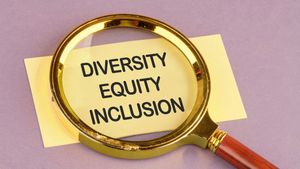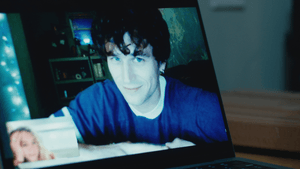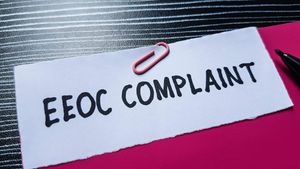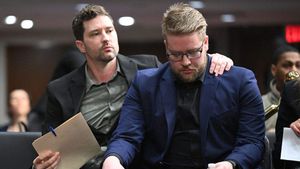
Treatment GuideJust DiagnosedSex & DatingAfrican AmericanStigmaAsk the HIV DocPrEP En EspañolNewsVoicesPrint IssueVideoOut 100
CONTACTCAREER OPPORTUNITIESADVERTISE WITH USPRIVACY POLICYPRIVACY PREFERENCESTERMS OF USELEGAL NOTICE
© 2026 Pride Publishing Inc.
All Rights reserved
All Rights reserved
By continuing to use our site, you agree to our Privacy Policy and Terms of Use.
Prevention Access Campaign’s U=U:Undetectable= Untransmittable is a global campaign. that seeks to educate the public about what it means for an HIV-positive person to be undetectable, now that research has proven those who are virally suppressed are uninfectious. Bruce Richman, PAC’s executive director, says U=U celebrates “the news that having an undetectable viral load means that we are not capable of transmitting the virus to our partners.”
In 2016, the New England Journal of Medicine published the final results of HPTN 052, a study into whether antiretroviral medication alone is enough to prevent HIV transmission among serodiscordant couples. Researchers concluded that those who started antiretroviral therapy earlier were 93 to 96 percent less likely to transmit HIV to their partners than those who began their treatment later. But, Richman says, “96 percent reduction in risk is the wrong number” to focus on, because it was “based on early HIV treatment, not from a undetectable level …. The actual number for reduction in risk from undetectable levels is 100 percent.”
Dr. Carl Dieffenbach, director of the Division of AIDS at the National Institute of Allergy and Infectious Diseases, agrees.Speaking at the HIV Research for Prevention Conference in Chicago, Dieffenbach reported that, in all cases where HIV transmissions occurred in the study, there had been “treatment failure.” Either the HIV-positive partner had not been fully suppressed (to undetectable levels), or they had not taken their meds as prescribed and saw their viral loads rebound.
In a Facebook Live interview for AIDS.gov, Dieffenbach said, “The most important number that we can focus on is this: If you are durably suppressed—meaning you have had a repetitive viral load test at or below detection—the chance of transmitting HIV to your partner, assuming you’re staying adherent, is zero. I’ll say it again: the chance of transmitting [HIV] if you are virally durably suppressed is zero.”
Richman says Dieffenbach’s statement was particularly important because he represents the National Institutes of Health (of which the NIAID is a part of). He argues that it’s also critical to have Dieffenbach and other experts speak out, because “virtually all HIV communications in the U.S. convey that there is still a risk, or warn that the risk — according to mathematic models — is not zero.”
“Exaggerating the ‘danger’ we are to others is an act of violence against all of us with HIV,” Richman argues. “And it makes us vulnerable to a myriad of harms and injustices. We deserve and demand accurate and meaningful information. That is not only critical to our social, sexual, and reproductive health, but it is essential to end the epidemic.”
From our Sponsors
Most Popular
“So much life to live”: Eric Nieves on thriving with HIV
September 03 2025 11:37 AM
The Talk: Beyond the exam room
August 13 2025 3:15 PM
Messenger RNA could be the key to an HIV vaccine — but government cuts pose a threat
August 20 2025 8:02 AM
It’s National PrEP Day! Learn the latest about HIV prevention
October 10 2025 9:00 AM
Amazing People of 2025: Javier Muñoz
October 17 2025 7:35 PM
The lab coat just got queer
August 21 2025 10:00 AM
The Talk: Owning your voice
August 25 2025 8:16 PM
“I am the steward of my ship”: John Gibson rewrites his HIV narrative
September 16 2025 2:56 PM
Plus: Featured Video
Latest Stories
HIV-positive men stage 'Kiss-In' protest at U.S.-Mexico border
December 01 2025 12:56 PM
What the AIDS crisis stole from Black gay men
December 01 2025 6:00 AM
The Talk: Navigating your treatment
August 01 2025 6:02 PM
The Talk: Starting the conversation
July 25 2025 4:47 PM
Thanks to U=U, HIV-positive people can live long, happy, healthy lives
July 25 2025 2:37 PM
How the Black AIDS Institute continues to fill in the gaps
July 25 2025 1:06 PM
“I felt like a butterfly”: Niko Flowers on reclaiming life with HIV
July 23 2025 12:22 PM
Dancer. Healer. Survivor. DéShaun Armbrister is all of the above
July 02 2025 8:23 PM
BREAKING: Supreme Court rules to save free access to preventive care, including PrEP
June 27 2025 10:32 AM
1985: the year the AIDS crisis finally broke through the silence
June 26 2025 11:24 AM
VIDEO: A man living with HIV discusses his journey to fatherhood
June 10 2025 4:58 PM
Trump admin guts $258 million in funding for HIV vaccine research
June 03 2025 3:47 PM
Grindr is reminding us why jockstraps are so sexy and iconic
May 02 2025 5:36 PM
HRC holds 'die-in' to protest Trump health care cuts
April 28 2025 2:11 PM
Two right-wing Supreme Court justices signal they may uphold access to PrEP and more
April 21 2025 4:10 PM
500,000 Children at Risk: PEPFAR Funding Crisis
April 08 2025 3:51 PM





































































